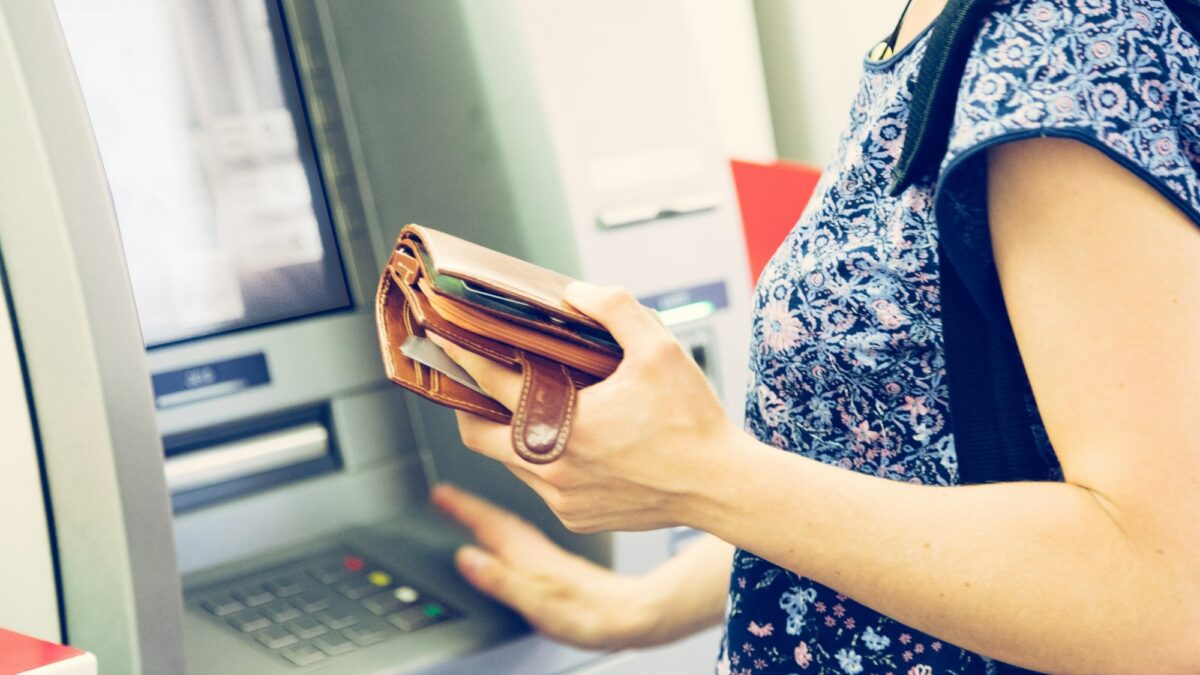Overdraft fees that banks charge for withdrawals exceeding funds in a checking account grew to their highest amount ever last year, as American households struggled financially during the coronavirus pandemic.
The average fee for overdrawing an account was $33.58, a 22-cent increase over the past two years, according to a Bankrate survey released Wednesday.
Among major U.S. cities, people living in Philadelphia, Baltimore and Houston last year paid the highest overdraft fees at more than $35. Cincinnati, Los Angeles and St. Louis paid the lowest fees at around $31, the survey revealed.
The best way to avoid these fees is to pay attention to your available balance, said Greg McBride, Bankrate's chief financial analyst in the report.
"But slip-ups occur so put in a line of defense by establishing a link between your checking account and savings account at the same bank so that money is immediately transferred into the checking account to cover any shortfall," McBride said.
Big U.S. banks have generated about $9 billion annually in revenue from overdraft, ATM and other fees in recent years, according to the Center for Responsible Lending. The fees have become somewhat of a cash cow over the past 20 years, said Rebecca Borné, senior policy counsel at the center.
Fees Impact Low-Income Clients, People Of Color Most
Some federal lawmakers are pushing to shrink those billions, arguing the fees are syphoned primarily from low-income customers and households of color.
Elizabeth Warren, speaking at a Senate Banking Committee hearing in May, condemned the CEOs of major banks for how much money their companies generated in banking fees during the pandemic. The Massachusetts Democrat said customers at Bank of America, JPMorgan Chase, Citigroup and Wells Fargo paid a combined $4 billion in overdraft fees, with low-income clients and people of color paying most of the fines.
McBride noted that some fintech companies offer checking accounts free from overdraft fees and those options "are worth considering for those with more than the occasional overdraft."
In June, Ally Bank announced it will no longer charge its $25 overdraft fee no matter what type of account a customer holds. Alliant, Discover and Regions have also ditched overdraft fees.
Bankrate's survey, which also examined other costs associated with keeping a bank account, found that the average fee for using an out-of-network ATM fell to $1.51, a 10-year low. The number of checking accounts that do not charge a monthly maintenance fee are on the rise as well, Bankrate said.
READ ORIGINAL ARTICLE
Overdraft fees that banks charge for withdrawals exceeding funds in a checking account grew to their highest amount ever last year, as American households struggled financially during the coronavirus pandemic.
The average fee for overdrawing an account was $33.58, a 22-cent increase over the past two years, according to a Bankrate survey released Wednesday.
Among major U.S. cities, people living in Philadelphia, Baltimore and Houston last year paid the highest overdraft fees at more than $35. Cincinnati, Los Angeles and St. Louis paid the lowest fees at around $31, the survey revealed.
The best way to avoid these fees is to pay attention to your available balance, said Greg McBride, Bankrate's chief financial analyst in the report.
"But slip-ups occur so put in a line of defense by establishing a link between your checking account and savings account at the same bank so that money is immediately transferred into the checking account to cover any shortfall," McBride said.
Big U.S. banks have generated about $9 billion annually in revenue from overdraft, ATM and other fees in recent years, according to the Center for Responsible Lending. The fees have become somewhat of a cash cow over the past 20 years, said Rebecca Borné, senior policy counsel at the center.
Fees Impact Low-Income Clients, People Of Color Most
Some federal lawmakers are pushing to shrink those billions, arguing the fees are syphoned primarily from low-income customers and households of color.
Elizabeth Warren, speaking at a Senate Banking Committee hearing in May, condemned the CEOs of major banks for how much money their companies generated in banking fees during the pandemic. The Massachusetts Democrat said customers at Bank of America, JPMorgan Chase, Citigroup and Wells Fargo paid a combined $4 billion in overdraft fees, with low-income clients and people of color paying most of the fines.
McBride noted that some fintech companies offer checking accounts free from overdraft fees and those options "are worth considering for those with more than the occasional overdraft."
In June, Ally Bank announced it will no longer charge its $25 overdraft fee no matter what type of account a customer holds. Alliant, Discover and Regions have also ditched overdraft fees.
Bankrate's survey, which also examined other costs associated with keeping a bank account, found that the average fee for using an out-of-network ATM fell to $1.51, a 10-year low. The number of checking accounts that do not charge a monthly maintenance fee are on the rise as well, Bankrate said.
READ ORIGINAL ARTICLE

